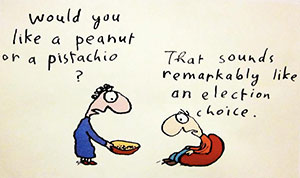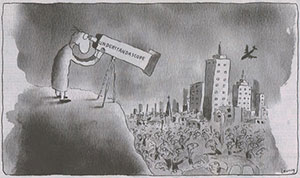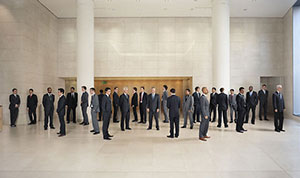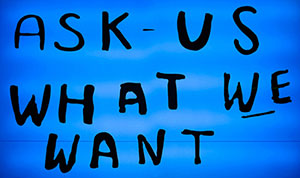Now law in Oregon, this concept was originated by Ned Crosby and Pat Benn. This would see random samples of several hundred voters drawn by the Electoral Commission to explore individual elements of policy proposed by all parties and independents. The group meets over a period of several months and is able to hear from...Continue reading
Incremental Alternatives
Introduce Optional Preferential Voting
This was the major electoral recommendation of the 2009 Citizens’ Parliament which assembled 150 randomly selected citizens drawn from every electorate nationally. (Disclosure Note: this event was funded and operated by the Foundation. Full findings are found here. In practice, this serves to eliminate preference deals which are lightly understood and (as a result) not...
Introduce a “None of the Above” Voting Option
or End Compulsory Voting With elections designed theoretically to reflect the will and voice of the people, this reform would allow dissatisfied and disengaged citizens to be heard while creating a clear distinction with inadvertent informal votes. The “none of the above” reform is potentially the most speculated upon while being very lightly researched or...Continue reading
An Enhanced Role for Executive Appointment
The nature of the adversarial political process results in a number of people with specialist expertise and management talent not making themselves available for senior office. It is often commented that one advantage of the US system is the capacity of the President to draw respected people of achievement and talent and appoint them to...Continue reading
Eliminate Private Donor Funding
Similar to the argument in favour of political advertising is that third party donations are a form of freedom of speech . A contrary view suggests that they significantly reduce public confidence in the motives of our elected representatives due to the perception that donations are only made in expectation of a commercial return, rather...Continue reading
Cap Political Advertising
Australian advertising entrepreneur John Singleton described election campaigns as the “ultimate one day sale”. This ought not be considered an endorsement. Arguments in favour of political advertising centre on the theme that it provides voter information and is a form of freedom of speech. A contrary view suggests that it provides little in the way...Continue reading
Increase and Promote Pre-poll Voting
Online and by Mail. As originally suggested in Rethinking the Vote (see Further Reading below) and then expanded by other authors, this seemingly minor change is suggested as improving the deliberative and comparative component of voting. The emphasis on home voting potentially sees voters armed with quite different sets of materials ranging from a short precis of...Continue reading
Lift Legislative Exemptions Applying Solely to Political Advertising
Currently, political advertising is not required to adhere to the same guidelines as commercial advertisers under the former Trade Practices Act (now the Competition and Consumer Act) or the Privacy Act. The lack of a requirement to adhere to the TPA prohibition on actions that “have the intent, or likely effect, to mislead or deceive” – coupled...Continue reading
Tie Party Funding to ‘Diversity’ Requirements
As referenced here, today each citizen’s valid vote is worth $4.78 in public funding provided to major political parties ($2.39 for each of the Lower and Upper House primary votes cast). One unresearched concept put to the Foundation (by recently retired politicians) would aim to break the increasing trend toward “career” politicians by proportionally tying...Continue reading








